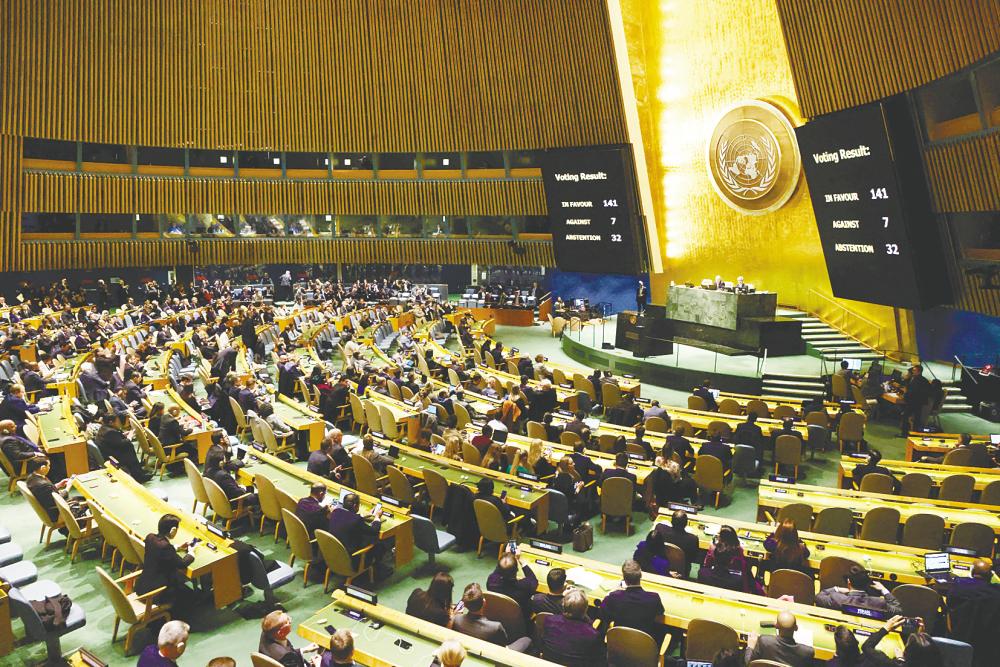AS Israel’s political and military leaders pursue an unrelenting war, which most observers see as “genocidal” in Gaza, hundreds of thousands of peace and anti-war protesters gathered and marched in the capital and smaller cities around the world, including Kuala Lumpur, to condemn Israel’s war crimes and killings of over 40,000 innocent civilians.
To this number, we have to add more casualties, including a significant number of women and children in Lebanon, where a new killing field has been opened up by the Israel Defence Forces.
While Netanyahu’s hardline ”take no prisoner” position and insistence on “total victory” in the current conflict is unprecedented even among conservative Zionist circles, it is no surprise in the United Nations (UN) system where Israel has been a serial transgressor of the UN Charter during war and peace.
The evidence of this can be seen from a study of the extent to which member countries of the UN are adhering to the true and not Western-defined rule-based international order.
Together with Israel at the bottom of a newly devised monitoring index developed to examine and measure the extent to which countries are conforming with the UN Charter as well as its goals such as the Sustainable Development Goals – a key challenge which all member countries have embraced – is the United States.
Such positioning may appear surprising to readers of the Western media fed with propaganda of how the US and its Western allies are the most fervent protectors of human rights, freedoms and the international rule of order.
Not only are the positions of the US and Israel revealing the extent to which the two countries have failed to support the UN in its mission of peace and security, the index also highlights the low ranking of some of the most developed countries of the West in upholding the principles and values of the UN Charter, and in supporting the development of the less developed countries of the world.
What is important about this index – cancelled or almost totally absent in Western media coverage – is that it is not the work of think-tanks or agencies that have an ideological agenda and who cherry-pick various political and other narrowly defined “democracy” and “human rights” issues, developments and indicators so that the US and its allies appear as the defenders of a free, open, equal and prosperous world.
Think-tanks, such as the US Centre for Strategic and International Studies and Rand Corporation, Australia’s Lowry Institute and Australian Strategic Policy Institute and others, cited in the Western media exist mainly as agents of political bias and manipulation to advance the interests of the US and its small group of allies.
These US State Department-funded organisations should emulate the UN team in its work on the multilateralism index. Focusing on six rigorous and neutral indicators – ratification of major UN treaties, percentage of
votes aligned with the international majority at the UN General Assembly, participation in selected UN organisations and agencies, participation in conflicts and militarisation, the use of unilateral coercive measures, and contribution to the UN budget and international solidarity – the report on the index and its findings is a model of completeness, uniqueness, timeliness, neutrality and accuracy.
Noteworthy too is that the full dataset is available online, enabling it to reach the larger public, including critics.
The report concludes with a reminder that “nation-states, which remain at the heart of the multilateral system, must be held accountable for upholding the values and principles of the UN Charter”.
It is a conclusion that recalcitrant countries ranking low in the index need to be reminded of. Meantime, the report deserves to be part of the essential reading in every forthcoming international conference and summit on peace, security and development.









